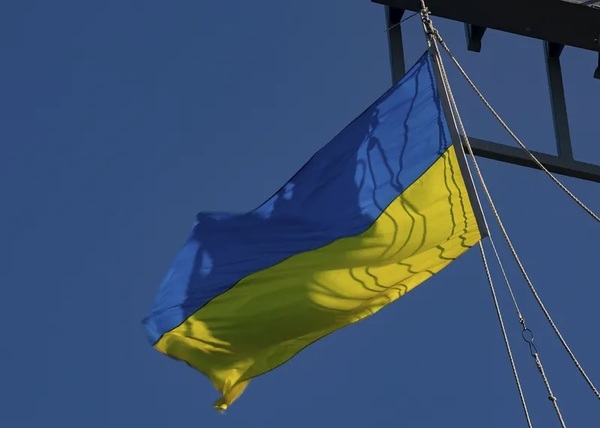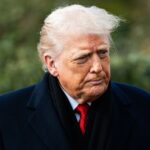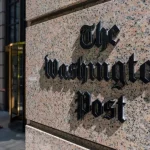
–>
March 2, 2023
The old adage “politics stops at the water’s edge” is an ideal that is too frequently forgotten in the harsh partisanship of our current highly emotional scrum of democracy. Even a brazen act of aggression in the heart of Europe by a Great Power rival of the United States and the West cannot get some to lift their eyes from petty politics and think seriously about the greater issues of national policy in a dangerous world.
‘); googletag.cmd.push(function () { googletag.display(‘div-gpt-ad-1609268089992-0’); }); }
Marking a year of intense combat in Ukraine should have been a combination of somber reflection and cautious optimism. The Ukrainian people preserved their independence from a revanchist invasion by Russia whose leader Vladmir Putin desires to rebuild the empire lost when the Soviet Union collapsed. But the cost has been great and not all the land lost has been won back. Russia is bombarding the nation’s infrastructure to freeze or starve civilians, children have been kidnapped by the invaders, and war crimes had been committed in the standard Russian way of war.
Putin’s commitment to a “long war” is not bearing fruit as his winter offensive is suffering the greatest casualties of the war. And the blatant aggression by Moscow has rallied not only the NATO alliance, but support across the world to Kyiv’s cause on both strategic and moral grounds. On February 23, the UN General Assembly voted 141-7 to condemn Russia for its invasion and called on Moscow to “immediately, completely and unconditionally withdraw all of its military forces from the territory of Ukraine.” It is hard to get the UN to back strong language proposed by the West (in this case Germany), but Putin’s bloody actions cannot be ignored.
Except by the usual left-wing critics of U.S. policy who always “blame America first” for any conflict and take the side of any enemy. More disturbing, some supposedly on the Right can’t bring themselves to support a Democrat President even when he is (finally) acting as the leader of the Free World. In their muddle, they have started echoing the rhetoric of the far Left.
‘); googletag.cmd.push(function () { googletag.display(‘div-gpt-ad-1609270365559-0’); }); }
The main argument of the critics is President Biden has been devoting too much time and money to the war instead of domestic problems. There is no question that major issues from border security to inflation to disruptive social movements come from policies at odds with conservative principles and common sense. And Republicans feel chagrined that they could not turn these concerns into more successful election outcomes last year. But there are many different policies and factions in the Democratic Party and it is not a simple either/or situation. Biden’s trip to Ukraine did not prevent him from going to Ohio or Texas. President Biden should be criticized when he is wrong (which is often) but supported when he is right. The standard is the national interest, and no party should expect to benefit by going against it.
 The strategic importance of Ukraine within the larger contest of Great Power rivalry did not just pop up last year. Keeping Kyiv independent as its people want has been a security issue for over thirty years. In 1994, after long negotiations, Ukraine agreed to give up the large nuclear arsenal it had inherited after the USSR collapsed. The U.S., UK and Russia guaranteed security for Kyiv in the Budapest Memorandum. This document pledged the powers to “respect the independence and sovereignty and existing borders of Ukraine” and to “refrain from the threat or use of force” against Ukraine. Russia’s invasion obviously violates its promise, but our failure to act would also violate ours. This is why UK has taken the lead in Europe on backing Kyiv.
The strategic importance of Ukraine within the larger contest of Great Power rivalry did not just pop up last year. Keeping Kyiv independent as its people want has been a security issue for over thirty years. In 1994, after long negotiations, Ukraine agreed to give up the large nuclear arsenal it had inherited after the USSR collapsed. The U.S., UK and Russia guaranteed security for Kyiv in the Budapest Memorandum. This document pledged the powers to “respect the independence and sovereignty and existing borders of Ukraine” and to “refrain from the threat or use of force” against Ukraine. Russia’s invasion obviously violates its promise, but our failure to act would also violate ours. This is why UK has taken the lead in Europe on backing Kyiv.
It is said we have no obligation to Ukraine because it is not in NATO. But NATO membership is not the only thing that determines whether a strategic interest is at risk. However, bringing Kyiv into NATO has been on the agenda for decades. NATO believes “a strong, independent Ukraine is vital for the stability of the Euro-Atlantic area. Relations between NATO and Ukraine date back to the early 1990s and have since developed into one of the most substantial of NATO’s partnerships.” Yet, formal membership was not granted because of fear of a Russian reaction. This policy of appeasement did what such policies always do. It invited war as it was seen as a sign of weakness.
Putin claims he attacked to prevent Ukraine from joining, and that the “expansion” of NATO into Eastern Europe posed a threat to Moscow. NATO “expands” when free nations request to join a collective security organization to defend against Russian expansion which has always been by fire and sword. The people of Ukraine want to join NATO, they do not want to be conquered by Russia. It is clear from where the threat to peace has always come. NATO is not a threat to Russia, only to the ambition of its leaders to attack others. This lust was deterred during the Cold War but has now turned violent because of weak policies in the West.
In September 2021, the U.S.-Ukraine Charter on Strategic Partnership was signed. Point 4 reads “Emphasize unwavering commitment to Ukraine’s sovereignty, independence, and territorial integrity within its internationally recognized borders, including Crimea and extending to its territorial waters in the face of ongoing Russian aggression, which threatens regional peace and stability and undermines the global rules-based order.” The partnership “is critical for the security of Ukraine and Europe as a whole.” But when Putin started marching troops around a few months later, President Biden seems to have forgotten this. He fell back on the “not a NATO member” excuse to do nothing. Indeed, he pledged to Putin that NATO would not defend Ukraine. So, assured of easy pickings, Putin attacked. Only the valiant defense put up by the Ukrainians changed the situation, winning the hearts and minds of those who support freedom and oppose aggression by Russia, a rival power aligned with China and Iran in an axis devoted to bringing down the West.
This war could have been prevented had President Biden acted before the shooting started with the same bravado he shows now in tweets about standing up against aggression “for as long as it takes.” Biden’s trip to Kyiv was bold and his meetings with the Bucharest Nine eastern flank allies and NATO Secretary General Jens Stoltenberg were grandly presidential. But they should not make us forget his failure a year ago to deter Putin. Ukraine, NATO and the world at large are having to pay dearly to correct that mistake. But there is a message here as well for Republicans. No candidate in 2024 should think returning to the “cut and run” policies of Biden’s disastrous first year will be attractive or wise. It would be a disgraceful retreat from leadership.
‘); googletag.cmd.push(function () { googletag.display(‘div-gpt-ad-1609268078422-0’); }); } if (publir_show_ads) { document.write(“
Ukraine, with a size and population larger than Poland, almost on a par with France, is not just a dot on the map. It is the central front in the world-wide contest between the Great Powers, their allies, and their values. As Japan’s Defense Minister Nobuo Kishi recently told the press “Confronting Russia will deter China” from pursuing its aggressive agenda that only starts with Taiwan. In short, we need to kick Putin so hard that Chairman Xi Jinping feels it in Beijing. War in Europe was not deterred, but we must strive to deter war in Asia by maintaining the integrity of the Western alliance. President Ronald Reagan called this Peace Through Strength and it should remain the motto of the Republican Party.
William R. Hawkins is a former economics professor who served on the Republican staff of the U.S. House Foreign Affairs Committee. He has written widely on international economics and national security issues for both professional and popular publications.
Image: RawPixel.com
<!– if(page_width_onload <= 479) { document.write("
“); googletag.cmd.push(function() { googletag.display(‘div-gpt-ad-1345489840937-4’); }); } –> If you experience technical problems, please write to [email protected]
FOLLOW US ON
<!–
–>
<!– _qoptions={ qacct:”p-9bKF-NgTuSFM6″ }; ![]() –> <!—-> <!– var addthis_share = { email_template: “new_template” } –>
–> <!—-> <!– var addthis_share = { email_template: “new_template” } –>





